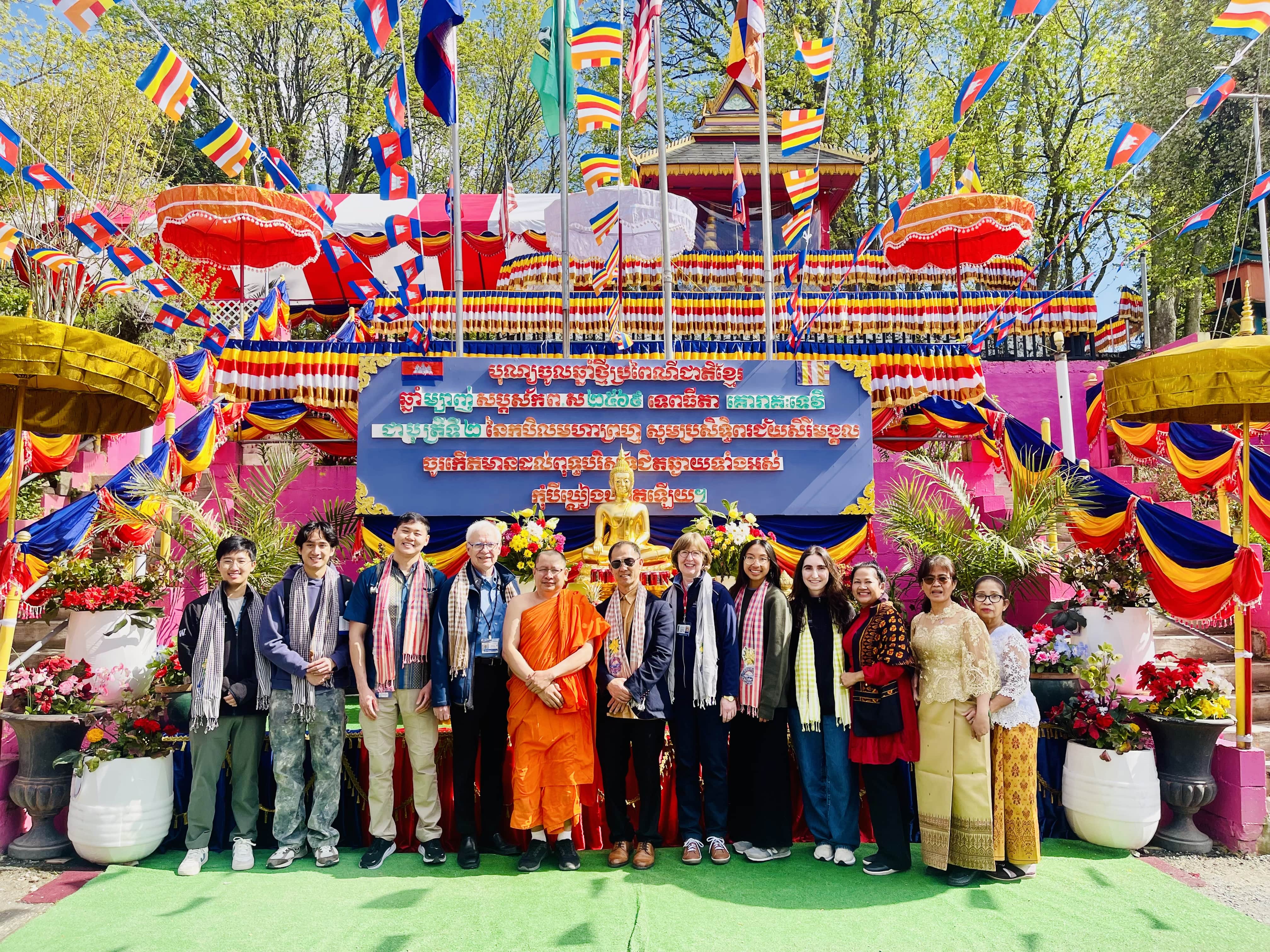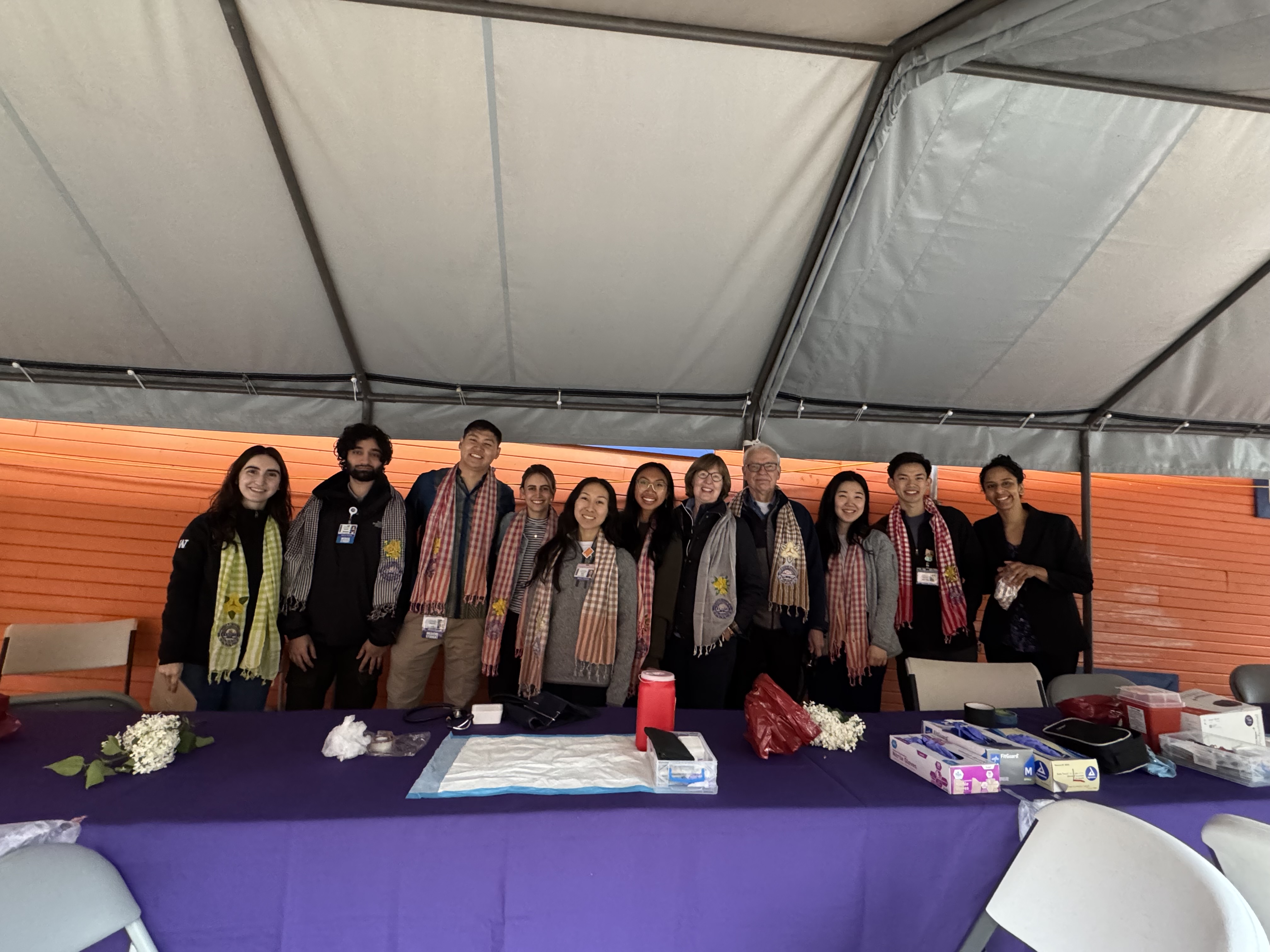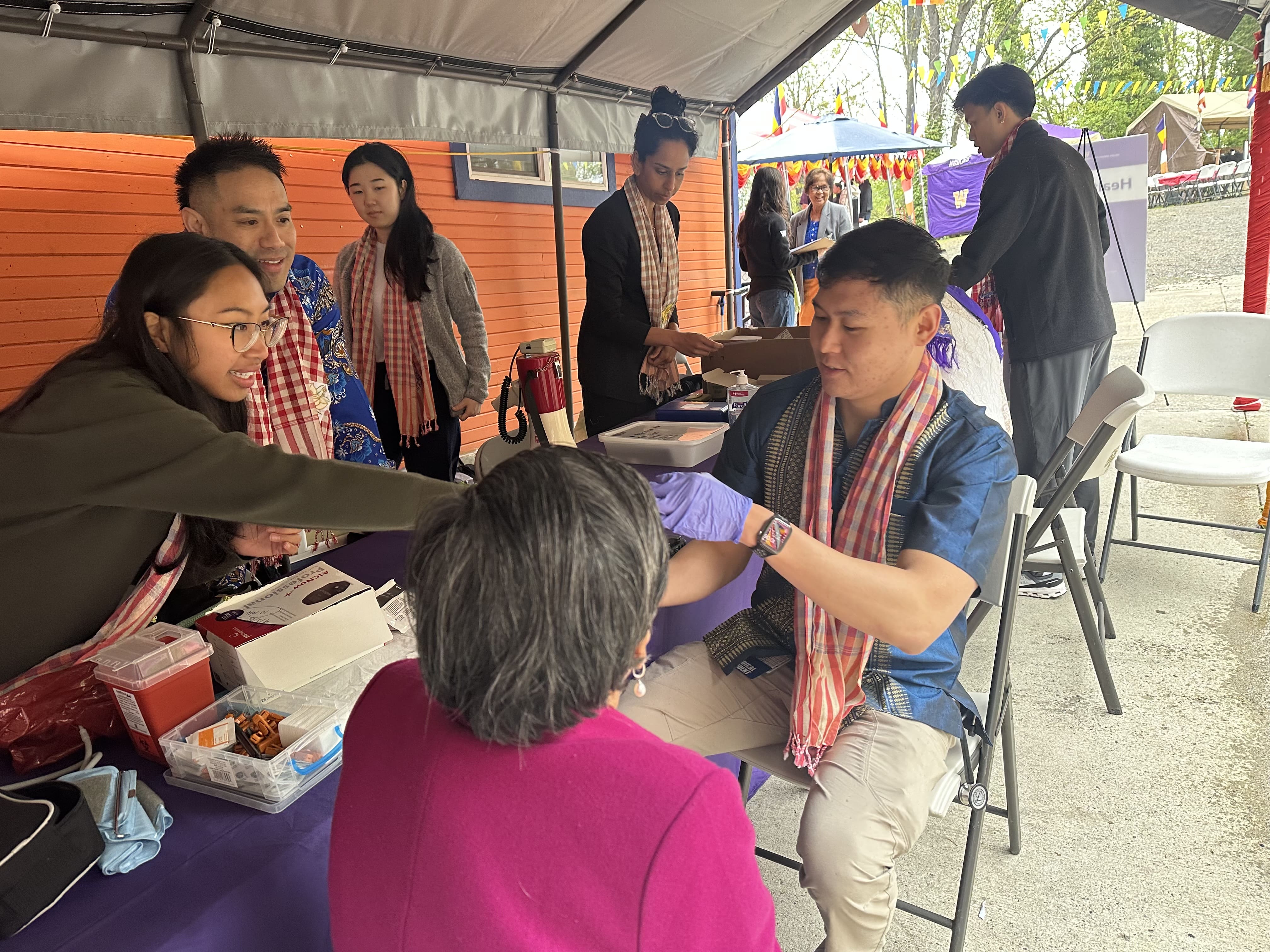 At Watt Dhammacakkaram, a Buddhist temple and cultural center for Seattle’s Cambodian community, this year’s Khmer New Year celebration included something new: free health screenings. The event marked the first time SHIFA (Student Health Initiative for Access), a UW School of Medicine (UWSOM) student-led health outreach group, partnered with the temple to bring care directly to this historically underserved population—thanks in large part to the efforts of UW first-year medical student Howard Lao.
At Watt Dhammacakkaram, a Buddhist temple and cultural center for Seattle’s Cambodian community, this year’s Khmer New Year celebration included something new: free health screenings. The event marked the first time SHIFA (Student Health Initiative for Access), a UW School of Medicine (UWSOM) student-led health outreach group, partnered with the temple to bring care directly to this historically underserved population—thanks in large part to the efforts of UW first-year medical student Howard Lao.
Lao, originally from California, has deep ties to the Cambodian community. His father is a refugee who immigrated to the U.S. in the 1980s during the Khmer Rouge genocide. Growing up in a Southeast Asian immigrant community, Lao witnessed the ongoing challenges faced by families like his. “A lot of people in the Cambodian community are struggling but don’t reach out—often because of cultural mistrust of the healthcare system or not feeling invited to speak,” he states.
As a co-lead with SHIFA Health Fairs, Lao helps break down barriers by organizing mobile clinics in partnership with community organizations as well as UWSOM student organizations and interest groups. These events empower underserved communities across Seattle through free screenings for blood pressure, glucose, cholesterol and more.
Many fair attendees are engaging with the U.S. healthcare system for the first time. “A big part of this work is just getting people talking about their health,” says Lao. “When we show up at events like Khmer New Year, we’re not asking people to come to us—we’re stepping into their world, on their terms.”
 Since joining SHIFA in fall 2024, Lao has worked to expand its reach to Seattle’s Cambodian community. With help from his father and Watt Dhammacakkaram coordinator Henry Tea, he built trust with temple leadership and co-organized SHIFA’s first-ever Khmer New Year Health Fair.
Since joining SHIFA in fall 2024, Lao has worked to expand its reach to Seattle’s Cambodian community. With help from his father and Watt Dhammacakkaram coordinator Henry Tea, he built trust with temple leadership and co-organized SHIFA’s first-ever Khmer New Year Health Fair.
“This was SHIFA’s first time hosting a health fair specifically for the Cambodian community,” says Lao. “Khmer New Year is one of the biggest cultural gatherings, so it felt like the perfect opportunity to provide care where people already were.”
The event was a resounding success, providing blood pressure, glucose and A1C screenings to more than 20 attendees, most of them older adults. Physicians were on site to answer questions and provide guidance about follow-up care. Lao also partnered with the UW Ophthalmology Interest Group (OIG), which provided basic vision screenings to several attendees. “One of my goals was to make the fair interdisciplinary—to bring in different student groups and provide more comprehensive care,” notes Lao.
The event was supported by student co-leads Irem Onalan, Vanessa Guinto and Muhammad Rahman, with faculty oversight from Dr. Brian Ross and Sue Ross, RN. The OIG team included medical students Kevin-Dat Nguyen and Ashley Choi, under the supervision of Dr. Miel Sundararajan.
Despite its success, the event wasn’t without challenges. Language accessibility and interpreter availability proved difficult, underscoring the need for greater cultural and linguistic resources in community health work.
 The temple shared a public reflection after the event, highlighting SHIFA’s impact and welcoming future collaboration. “I never imagined seeing our youth in white coats speaking Khmer with our elders,” remarked an attendee who received a health screening. “This brings tears to my eyes—our culture lives on in ways I couldn’t have dreamed possible.”
The temple shared a public reflection after the event, highlighting SHIFA’s impact and welcoming future collaboration. “I never imagined seeing our youth in white coats speaking Khmer with our elders,” remarked an attendee who received a health screening. “This brings tears to my eyes—our culture lives on in ways I couldn’t have dreamed possible.”
Lao is now planning another temple-based health fair for a major October celebration and is working to involve more UWSOM student organizations to expand service offerings.
Although Lao is still exploring a clinical specialty—possibly orthopedic surgery—his commitment to advocacy and culturally grounded care is unwavering. He sees his future as one that blends clinical excellence with community leadership, and he hopes his efforts to build connections between SHIFA and the Cambodian community will endure long into the future. “I’m hoping this can become an annual event—even after I move on to later years of medical school. It would be amazing to make this a lasting part of SHIFA’s outreach,” reflects Lao.
